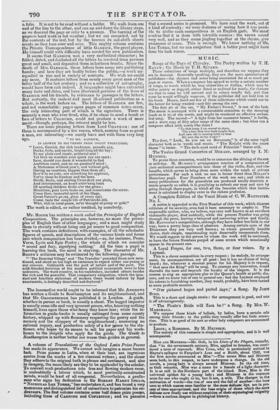MISS AND MISTRESS.—Mr. Galt, in his Lives of the Players,
remarks, that " in the seventeenth century, Miss, applied to females, was consi- dered a term of reproach. Miss Cross, who is particularly noticed in Hayne's epilogue to Farquhar'S Love and a Bottle, about 1702, was the first actress announced as Miss."—The terms Miss and Mistress seem both, in this respect, to have undergone a change. In the old. novels, a young lady is always termed Mistress. In the old time, as Galt remarks, Miss was a name for a female of a light character. It is so still in the Northern part of the island. Now, Miss is the universal epithet for a young lady; and Mistress is the common term for one who ought to be, but is not, a wife. The changes in the estimation of words—the rise of one and the fall of another—the base uses to which names, once familiar to the most delicate lips are in pros cess of time appropriated, and the base origin of those which the most delicate now freely use without suspicion of their etymological vulgarity —form a curious chapter in philological history.


























 Previous page
Previous page